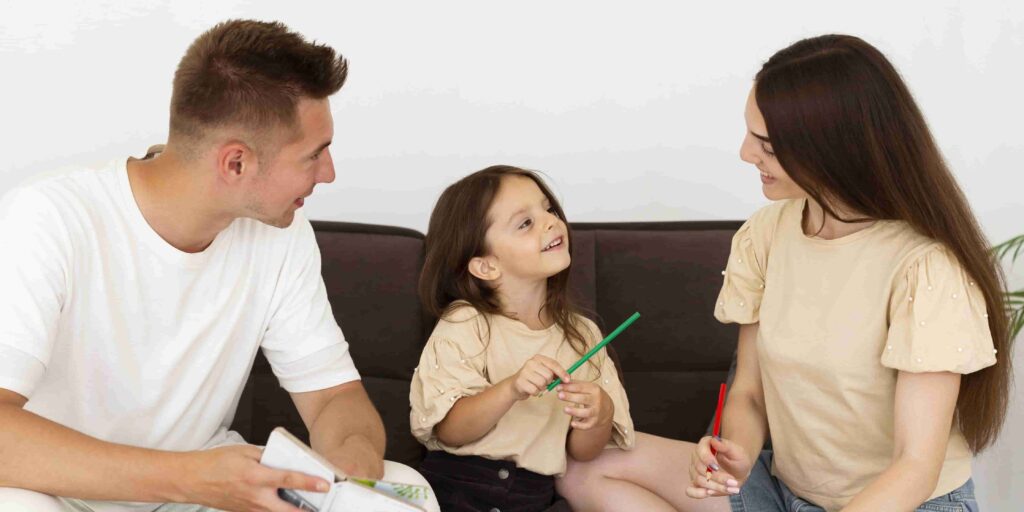
- +61 1300 704 750
- admin@parentinggenie.com.au
- PO Box 706, Townsville, QLD 4810
Introduction:
Oh, the incredible energy and curiosity of children up to 5 years old! As parents, we witness their rapid growth and development, but we also face the challenge of guiding them through their early years. Discipline plays a vital role in teaching our little ones right from wrong, while fostering their emotional well-being and nurturing their budding personalities. In this article, we’ll explore a collection of effective discipline techniques that will help you navigate the wonders and challenges of parenting your child up to 5 years old, all while keeping their hearts filled with love and understanding.
The Power of Connection:

Discipline begins with a strong bond. Connect with your child on their level, showing empathy and understanding. Let them know they are loved unconditionally, even when correcting their behavior. By building this connection, discipline becomes a loving process of growth rather than a source of fear.
Gentle Guidance:

Guide their little steps with gentleness. Use positive reinforcement to acknowledge and reward good behavior, helping them understand what is expected. Redirect their attention to more appropriate activities when they veer off course, offering gentle reminders and explanations.
Consistency and Routine:
Children thrive on consistency and routine. Establish clear boundaries and expectations, consistently enforcing them. Create a predictable environment that helps them feel secure and understand the consequences of their actions.
The Art of Distraction:
At times, redirection is the key. When faced with challenging behaviors, offer a delightful distraction, or engage them in a different activity. This gentle shift of focus can help steer them away from negative behaviors and redirect their energy towards more positive outlets.
Empathy and Emotional Coaching:
Children are still learning to manage their emotions. Show empathy and teach them emotional intelligence by labeling their feelings and offering support. Help them express their emotions in healthy ways, teaching them that it’s okay to feel, and guiding them towards constructive solutions.
Time-In, Not Time-Out:
Instead of isolating children with time-outs, try a time-in approach. Create a safe space where they can calm down, express their feelings, and discuss what went wrong. Use this time to foster communication, understanding, and growth.
Model Behavior:
Children are keen observers. Be a positive role model by demonstrating the behaviors and values you want them to adopt. Show kindness, patience, and respect towards others, and they will naturally follow suit.
Teach Problem-Solving:
Encourage problem-solving skills from an early age. Guide them through conflicts, allowing them to brainstorm solutions and make choices within appropriate boundaries. This cultivates independence and critical thinking, empowering them to resolve conflicts as they grow.
Time for Reflection and Reconnection:
After a disciplinary incident, take time to reflect and reconnect. Discuss what happened, explore the emotions involved, and encourage them to learn from the experience. Reinforce the importance of their well-being and the value of their actions.
Conclusion:
Discipline is a profound act of love and guidance. By embracing effective discipline techniques for children up to 5 years old, we can create an environment that nurtures their emotional growth, encourages positive behavior, and builds a strong foundation for their future. Remember, discipline is not about punishment, but about shaping their hearts and minds with love, compassion, and understanding. Let us embark on this incredible journey, hand in hand with our little ones, as we help them navigate the world with kindness and resilience.